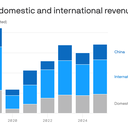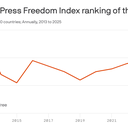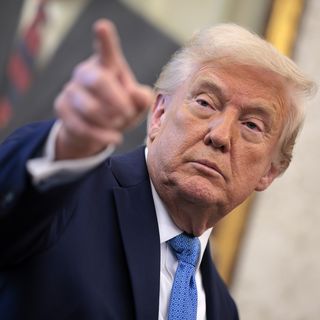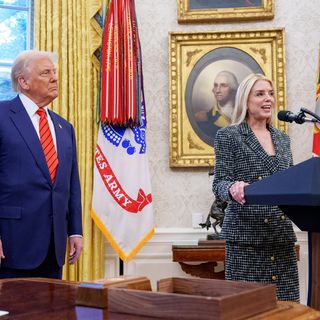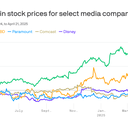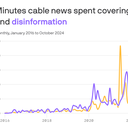Trump movie tariffs could hit U.S. film studios where it hurts the most
President Trump's threat to impose tariffs on film imports to the U.S. could risk retaliatory actions in international markets, where American film studios make the bulk of their box office revenue.
Why it matters: Studios are already reeling from a weakened box office following the pandemic. Tariffs could send the industry into a tailspin.
How it works: The U.S. is the top exporter of films globally by far, with export value running at three times imports, according to the Motion Picture Association (MPA).
- U.S. movie studios typically drive the bulk of global box office sales. The majority of their revenue tends to come from distribution outside of the U.S., which is why any sort of retaliatory tariffs on U.S. film exports would be disastrous for Hollywood.
- For example, the top-grossing movie globally last year, "Inside Out 2," was produced by U.S.-based entertainment giant Disney, but the bulk (61.6%) of its $1.7 billion in box office revenue was made abroad.
- Similarly, 56% of global ticket sales to Warner Bros. Pictures' "Barbie," the top-grossing film the year prior, came from international distribution.
State of play: Most major studios and even some analysts are holding back commentary until the Trump administration offers more details around how a tariff on intellectual property (IP) would actually work.
- The White House has not offered much clarity, leaving the industry confused as to exactly which films qualify as "coming into our Country that are produced in Foreign Lands," as Trump put it on Truth Social.
- There are no final decisions on film tariffs, but "the Administration is exploring all options to deliver on President Trump's directive to safeguard our country's national and economic security while Making Hollywood Great Again," White House spokesperson Kush Desai told Axios.
Reality check: Studios are in a bind without more information.
- A tariff on production costs abroad would create a much different calculus for a studio to consider, versus a tariff on box office sales.
- The definition of production is also puzzling. Many Hollywood hits are shot, edited, or directed overseas, but only partially. Some are shot in the U.S., but rely on cheaper labor abroad for certain parts of editing, set design or costume manufacturing.
- The ambiguity also has implications for global streamers, like Netflix, that distribute local content from foreign countries to subscribers in the U.S.
- Some analysts have warned that studios may freeze overseas production, weakening the overall box office, until they have answers.
Zoom out: Outside of the U.S., most movies are filmed in places like the U.K., Canada, and European countries that offer sizable tax incentives.
- California Gov. Gavin Newsom has pushed to double the state's film and TV tax credit to lure production back. Others, such as actor Jon Voight, have pitched the Trump administration on a federal tax credit to keep production in the U.S. broadly.
The big picture: In declaring the new policy, President Trump said the movie industry in America is "DYING a very fast death," but that's not entirely true.
- While box office revenues in the U.S. and worldwide are down significantly since the pandemic, analysts don't believe the industry is dying, especially as some films prove theaters are more popular than ever.
